AESA PROGRAMMES
- Building R&D Infrastructure
- Developing Excellence in Leadership, Training and Science in Africa (DELTAS Africa)
- Human Heredity and Health in Africa (H3Africa)
- Africa’s Scientific Priorities (ASP)
- Innovation & Entrepreneurship
- Grand Challenges Africa
- Grand Challenges Innovation Network
- Rising Research Leaders/Post-Docs
- AESA RISE Postdoctoral Fellowship Programme
- African Postdoctoral Training Initiative (APTI)
- Climate Impact Research Capacity and Leadership Enhancement (CIRCLE)
- Climate Research for Development (CR4D)
- Future Leaders – African Independent Research (FLAIR)
- Critical Gaps In Science
- Clinical Trials Community (CTC)
- Community & Public Engagement
- Mobility Schemes: Africa-India Mobility Fund
- Mobility Schemes: Science and Language Mobility Scheme Africa
- Research Management Programme in Africa (ReMPro Africa)
- Science Communication/Africa Science Desk (ASD)
- Financial Governance: Global Grant Community (GGC)
- AAS Open Research
- CARI Programmes
- Evidence Leaders Africa (ELA)
Community & Public Engagement
Community and Public Engagement (CPE) has no single or simple definition.
In science and health research, CPE refers to two-way interactions between scientists and non-scientist/non-specialist publics about science, research, and innovation; intended to provide opportunities for mutual learning and benefit
CPE at the AAS focused on non-specialist publics other than media and policy makers. Although engagement approaches across these three categories may be similar, the outcomes sought differ.
- CPE goals focused on building trust and perspective seeking
- Media engagement focused on building capacity for accurate and authoritative reporting on science and health research, with the goal of enhancing knowledge transfer and defending science
- Policy engagement in science and health research aimed to ensure that academic research contributes to policy decisions.
- The AAS developed a 3-year CPE strategy that prioritised DELTAS Africa and H3Africa programmes.
- The strategy was focused on building and/or strengthening CPE capacity among AAS grant holders through; training of engagement staff; advocacy with institutional leadership; and the implementation of a CPE seed fund call
Meet the Team
Community and Public Engagement was a programme that was focused on building trust and perspectives, building capacity for authoritative reporting on science and strengthening policy engagement in science and health research. This programme was completed.
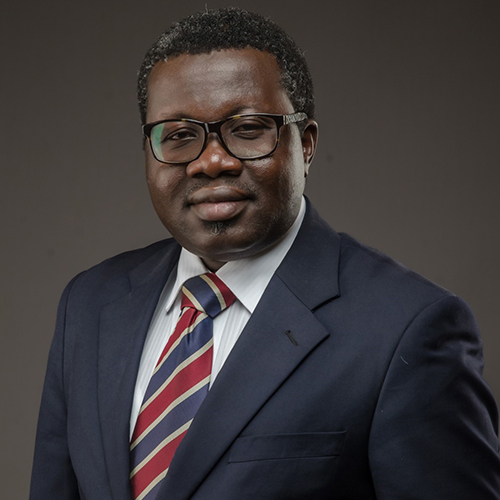 Adebolajo A. Adeyemo
Adebolajo A. Adeyemo Nigeria
Cohort 1 (2019)
The silent plague
Adebolajo A. Adeyemo is a Senior Medical Research Fellow and Head of Ear and Hearing Disorder Research Group at the Institute of Child Health, University of Ibadan and Honorary Consultant ENT Surgeon, University College Hospital, Ibadan. His research interest centers on “Deafness within the African milieu”, this is a deliberate attempt to situate deafness and hearing disorders research in the context of the African setting. The focus on deafness stems from the uneven burden of hearing impairment in sub-Saharan Africa. Deafness is the most common disability in the world with a severe footprint in Africa.
Adebolajo will utilize a tripod approach of clinical management, laboratory, and community research, to adopt a holistic approach to research on deafness. It is expected that this approach will enable a rapid bench to bedside translation and community acceptance of research outputs with the goal of bringing a rapid succor to Africans by mitigating the burden of hearing impairment.
The silent plague
Hearing loss is the most prevalent chronic disability worldwide. Over 5% of the world’s population have disabling hearing loss and majority of the sufferers live in sub-Saharan Africa and Southeast Asia. By 2050 one in every ten people – will have disabling hearing loss. Many causes of hearing loss such as ototoxicity are preventable and interventions preventing hearing loss are cost-effective and yield great dividends.
Aminoglycoside antibiotics such as Streptomycin, Gentamycin, Amikacin are used in treatment of various infections, however these drugs are the most common cause of ototoxicity. Aminoglycosides are cheap but quite effective therefore, despite their side effects, aminoglycosides are commonly used in sub-Saharan Africa. Currently, there are limited efforts to curtail aminoglycoside ototoxicity in Nigeria despite the huge exposure of the population to aminoglycosides.
The objectives of this study are:
1. Explore current practices towards dispensing and administration of aminoglycosides and the societal response to lack of patient information leaflets in local languages and inadequate provision of treatment side-effects information to patients.
2. Explore the efficacy of short drama videos in stimulating communal discussions on proffering grassroots driven solutions to reduce the burden of ototoxicity and adoption of personal health monitoring exercises.
A short drama video and social media will be utilized to explore societal engagement in curbing ototoxicity. There is great similarity in the society fabric in many urban centers in Nigeria. This similarity will be leveraged in the video production and in the deployment of social media engagement to cover wide sections of the country.
Multiple input will be sought from direct observations and collation of experiences from patients, drug vendors and healthcare workers to develop scripts for the drama that describe succinctly the existing practice in the prescription and administration of aminoglycosides in the various healthcare dispensing outlets with emphasis on indiscriminate use.
The video will be screened at town hall meetings comprised of patients and their relations and moderated discussions of the video will be facilitated. Dedicated social medial accounts will be used to share the video with the wider community and receive feedback. The feedback will be curated and analyzed for dissemination to policy makers.
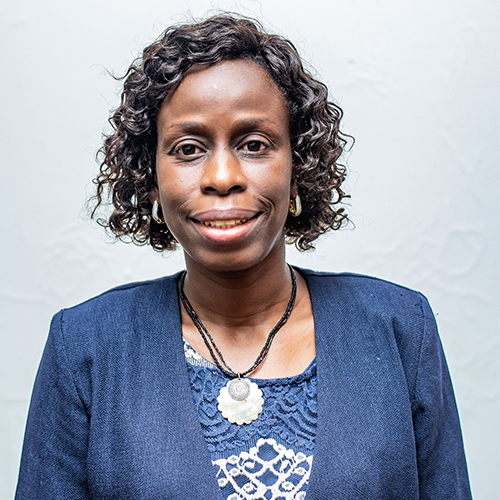 Adesola Oluwafunmilola Olumide
Adesola Oluwafunmilola Olumide Nigeria
Cohort 1 (2019)
Gown and Town: Synergy for Enhanced Societal Impact
Adesola Oluwafunmilola Olumide is a Senior Medical Research Fellow and Consultant Physician at the Institute of Child Health, University of Ibadan and University College Hospital, Ibadan, Nigeria. Adesola's research interests include the epidemiology and risk factors for non-communicable conditions and health risk behaviors among adolescents. In addition, she has a keen interest in using electronic media to reach adolescents and young people with health interventions. Adesola currently serves as a Commissioner on the WHO-UNICEF-Lancet Commission on Child Health and Well-Being. She also serves on the National Adolescent Health Technical Working Group in Nigeria and has been involved in developing and revising key Adolescent Health documents and training manuals for the Federal Ministry of Health. She has extensive experience working among various populations of adolescents including in-and out-of-school and very young adolescents.
Gown and Town: Synergy for Enhanced Societal Impact
There are nearly 1.2 billion adolescents (10-19 years old) worldwide. Unfortunately, this is the population group that remains overlooked and neglected in nearly every health care system. Adesola's research findings revealed that adolescents enrolled in secondary school were less likely to engage in health-risk behaviours (cigarette smoking and unsafe sexual practices) compared to their out-of-school counterparts.
The overarching aim of the project is to identify feasible actions for promoting senior secondary school retention, which will be disseminated to school owners in Ibadan, Nigeria. Adesola will collaborate with stakeholders (adolescents and teachers) to develop:
(i) a prioritized list of common locally relevant enablers and barriers to secondary school retention
(ii) feasible interventions to encourage secondary school retention and
(iii) a research brief, to facilitate dissemination of these messages to school owners i.e. government and private school proprietors at a Public Health fair with the theme, “Education is a Vaccine”.
To achieve this, she will utilize participatory methods namely: a datawalk (with adolescents and teachers); a photovoice exercise for in and out-of-school adolescents; and a community mapping exercise with teachers. These activities will enable Adesola to advocate for improved senior secondary school enrollment and retention in Nigeria.
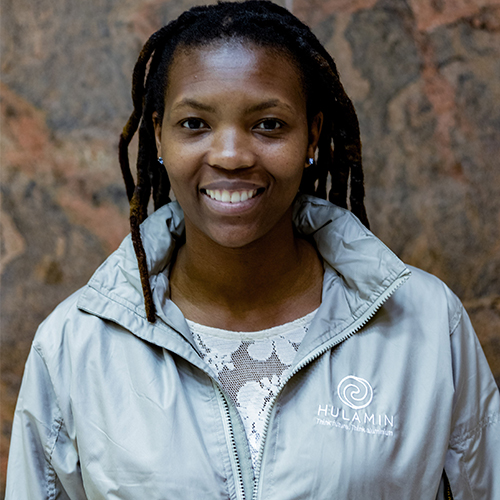 Lerato Ndlovu
Lerato Ndlovu South Africa
Cohort 1 (2019)
Science-2-Society: Raising future leaders
Lerato Ndlovu is a SANTHE PhD fellow at the Africa Health Research Institute (AHRI) in South Africa. She did her master's in Plant Breeding and Biochemistry then later worked at Dr Al Leslie’s immunology lab. Ndlovu's research focuses on identifying easy-to-measure changes in the immune system of Tuberculosis (TB) patients' that indicates the severity of TB infection, which can be used to monitor responses to drug treatment. Her overall goal is to develop an approach for real-time tracking of TB treatment success to improve TB cure rates and aid patient management.
Science-2-Society: Raising future leaders
The greatest scientific resource is the next generation of scientists and their development relies on early and frequent exposure to opportunities to explore science. Rural schools in South Africa are kept at a disadvantage due to limited access to information and communication technology, lack of basic infrastructure, shortage of qualified teaching staff, and a combination of socio-economic circumstances.
The goal of this CPE project is to promote science education through exposing students to available career paths in research and creating an understanding of the direct impact of science on daily life.
Ndlovu will use a play to create interest in infectious disease research in the otherwise neglected rural community of Estcourt in KwaZulu-Natal Province, South Africa. The play will take the audience on a journey of the immune response to TB infection, the importance of TB adherence and how her research will identify immune signatures associated with treatment success that can potentially be used in the development of drugs that shorten therapy.
Her second approach is to hold career talks with junior and senior scientists to engage the students and encourage them to consider science as a viable career path. Her third and final approach is to hold an essay writing competition, where 5 finalists will attend a week-long mentorship programme at AHRI that is designed to be fully immersive in the culture of scientific research enriching the experience for highly motivated students.
Innovation in science is largely driven by the desire of individuals to solve specific problems facing their communities and themselves. The goal of the project is to motivate students to become more inquisitive about diseases affecting their communities and empower them to develop tailored methods for interventions through education.
 Lucy Mupfumi
Lucy Mupfumi Botswana
Cohort 1 (2019)
Harnessing adolescence advocacy to end TB in Botswana
Lucy Mupfumi is a PhD candidate based at the Botswana-Harvard AIDS Institute Partnership with over 10 years of experience in laboratory medicine, research mentorship, training in quality management systems, and point of care diagnostics. She also has experience in clinical trials coordination and laboratory systems strengthening. Mupfumi's research interests are in HIV/Tuberculosis (TB) epidemiology and immunology. Her project seeks to understand predictors of incident TB and immunological markers of treatment response in HIV-TB co-infected patients.
Harnessing adolescence advocacy to end TB in Botswana
TB currently causes more deaths than HIV, claiming an estimated 4,500 lives daily. The World Health Organization officially launched a global youth movement to raise awareness about TB, “#1plus1YouthInitiative”.
The goal of this CPE project is to use innovative approaches to engage adolescents aged 12-19 years in Gaborone, Botswana to understand the predictors of incident TB in HIV-infected patients. The project has 2 key activities:
1) A ten-day intensive engagement workshop with HIV-infected adolescents in collaboration with Eh!woza, which will culminate in short documentaries produced by the youth that will reflect experiences, perspectives and attitudes towards HIV and TB
2) Youth-produced documentaries being disseminated to high school learners and on social media
The project aims to instill a sense of appreciation of biomedical research conducted in Botswana within the adolescent group and stimulate two-way discussions with adolescents around TB and HIV fears, misconceptions and stigma.
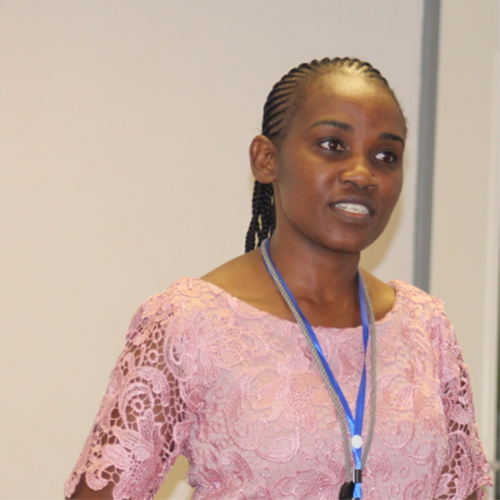 Motswedi Anderson
Motswedi Anderson Botswana
Cohort 1 (2019)
HepB0: Silent No More
Motswedi Anderson is a SANTHE Postdoctoral Fellow at Botswana Harvard AIDS Institute Partnership. Her research interests are in viral hepatitis (B, C, D and E) and human immunodeficiency virus. She completed her PhD in Biological Sciences in 2018 and her project was ‘Prevalence and molecular characterization of hepatitis B virus infection in Botswana’. She did BSc. in Biomedical Sciences at the University of KwaZulu Natal, Durban, South Africa in 2005. She has been with Botswana Harvard AIDS Institute Partnership since 2006 and aspires to be a renowned researcher playing a key role in viral hepatitis elimination.
HepB0: Silent No More
Mortality due to viral hepatitis has been on the rise, and the greatest burden is due to hepatitis B virus (HBV) which kills around 887,000 people per annum. There is little knowledge about HBV among the community. Here, we aim to gauge knowledge and perspectives towards HBV and HBV research in Botswana. We plan to target 18 to 40-year-old adults from Universities. These were chosen because most of the HBV infections in Africa are postulated to be acquired during childhood and since HBV takes about 20 to 40 years to progress this is the group which might need interventions. Current HBV research is also on adults hence they are within the bracket of the ongoing research hence their feedback is invaluable. Furthermore, they include women of childbearing age who carry a risk of transmitting HBV to their infants who conversely have a 90% chance of developing chronic HBV infection. This will be initiated by meeting with key stakeholders such as Ministry of Health and Wellness representatives, University administrators and community representatives to ensure that our engagement activities such as discussion points are people-centred and are tailored in a most effective way. The knowledge and attitudes towards HBV research and HBV will be gauged through questionnaires and verbal assessments. The ongoing HBV research project and some concepts of HBV will be shared with the target groups through talks, posters, artworks and disseminated through social media. Effectiveness of the project will be measured through surveys, and participant referrals. We hope this will assist in understanding perspectives and needs of community members in HBV research. It will further enhance the participant’s informed knowledge and autonomy in participating in research, using research results, and accessing/requesting health care services.
 Patience Kiyuka
Patience Kiyuka Kenya
Cohort 1 (2019)
A novel scalable public engagement tool: taking KEMRI-Wellcome Trust Research virtual laboratory to young children aged 10-14 years using immersive technology
Patience Kiyuka is a PhD student under the Initiative to Develop African Research Leaders (IDeAL) at KEMRI-Wellcome Trust Research Programme, Kilifi. She is registered at Open University; the UK and her PhD project seeks to understand the role of complement in antibody-dependent immunity to Plasmodium falciparum.
In 2015 she obtained a Masters of Science degree in Infectious Diseases from London School of Hygiene and Tropical Medicine. The Commonwealth Scholarships funded her MSc studies. Patience completed her undergraduate studies in 2010 from Kenyatta University in Bachelor of Science in Biochemistry. She has extensive experience in biomedical research and has spearheaded several research projects, including molecular epidemiology of various respiratory viruses to understand their transmission dynamics. Patience has authored and co-authored several publications in peer-reviewed journals, presented in many conferences and was most recently appointed as a member of the KEMRI Scientific Ethics Review Unit.
A novel scalable public engagement tool: taking KEMRI-Wellcome Trust Research virtual laboratory to young children aged 10-14 years using immersive technology
Public engagement by researchers is vital if the public is to understand and appreciate science. Immersive technology that involves using Virtual Reality (VR) and Augmented Reality (AR) is poised to profoundly transform the way science is communicated to the general public. Immersive technology allows the users to “immerse” themselves to varying degrees to the artificial environment which may be a simulation of some form of reality or attempt to create an artificial world that a person can experience and explore interactively by wearing a helmet, headset or goggles. Although relatively new, the technology has been used in Europe to promote understanding of Science, Technology, Engineering and Maths (STEM) through projects such as the F1 in Schools STEM challenge https://www.f1inschools.com and Labster whereby students are given access to a realistic laboratory experience (https://www.labster.com). To the best of our knowledge, there is no documented evidence of VR usage as a tool for public engagement of research in Africa. We propose to use immersive software platforms to create a virtual KEMRI-Wellcome Trust Research laboratory experience to allow children aged 10-14 years to visualize what it means to work in an intellectually stimulating environment. Our approach will be to engage the students, teachers, and parents in the content generation that best suits our target age group. By communicating science through Virtual Reality, we hope to spread awareness, increase understanding of research, and inspire young scholars to consider STEM careers options. We are hoping to get children to have fun wearing headsets and experiencing science through Virtual Reality while learning and appreciating research.
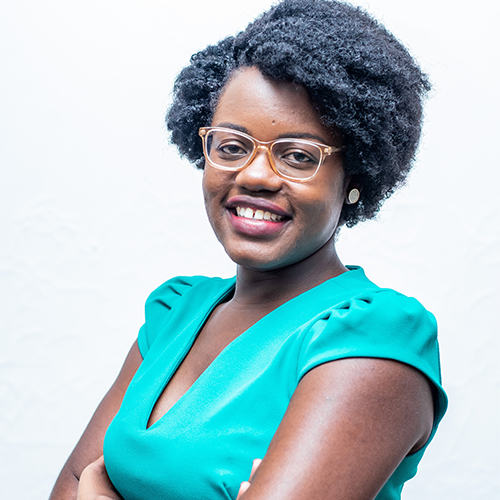 Primrose Nyamayaro
Primrose Nyamayaro Zimbabwe
Cohort 1 (2019)
Mental health community engagement for people living with HIV
Primrose Nyamayaro is a mental health researcher interested in depression and neuropsychology research. She received training in the applied nature of mental health research in her undergraduate and master’s degrees. This laid a solid foundation for the work she has been engaged in for the past five years in Zimbabwe. This included feasibility and effectiveness trials on the interface between HIV and mental health, funded by various international organisations including the US National Institutes of Health (NIH). Her interest in neuropsychology research led her to validate an app based cognitive screener that can be used by lay counsellors to assess patients living with HIV as her doctoral research study.
Mental health community engagement for people living with HIV
People living with HIV are more likely to have common mental disorders such as depression, which has negative outcomes on antiretroviral therapy medication adherence. Neurocognitive impairment affecting day to day functioning is also prevalent. This community engagement project aims to engage persons living with HIV and their support networks in participatory methods that empower them with mental health knowledge to improve their treatment outcomes. Their opinions, insights and lived experiences, when coupled with the researcher’s knowledge have the potential to empower communities to effectively utilise the outcomes of health research. However, with the existence of an engagement gap between researchers and HIV service users in the mental health field in Zimbabwe this has not been possible.
Therefore, the objectives are to engage persons living with HIV and their support networks in i) focus group discussions and workshops where the most current mental health research outcomes in Zimbabwe and the African continent are shared; ii) discussions around their opinions and perceptions around mental health and their effects on their lives; iii) sharing their opinions and expectations from the research community in fun collaborative ways; and iv) coming up with HIV service users inspired mental health education awareness messaging materials for dissemination. Input from the community will greatly aid the creation of valid strategies that will ensure that research outcomes and outputs will be beneficial to them.
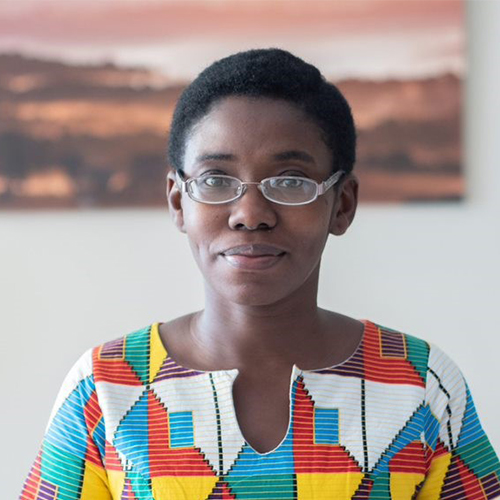 Amiah Ahou Mireille
Amiah Ahou Mireille Cote D'ivoire
Cohort 2 (2020)
Tackling high illiteracy levels among women through interactive engagement
Mireille's project aims at tackling high illiteracy levels among women through interactive engagement with 40 girls from Bouna High School. She will set up a science club to show students the value of science and change their perception on scientific careers.
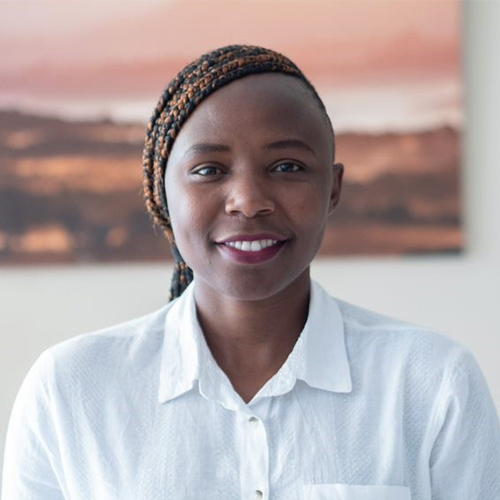 Beatrice Indimuli Amboko
Beatrice Indimuli Amboko Kenya
Cohort 2 (2020)
KEMRI-Wellcome Trust Research Programme
The scientific and health research field are dominated by men. To encourage more participation from women and reduce the gender disparity there needs to be more candid conversations on gender equity in science. Amboko's project aims at starting these conversations with students at the university level through campus-based science cafés.
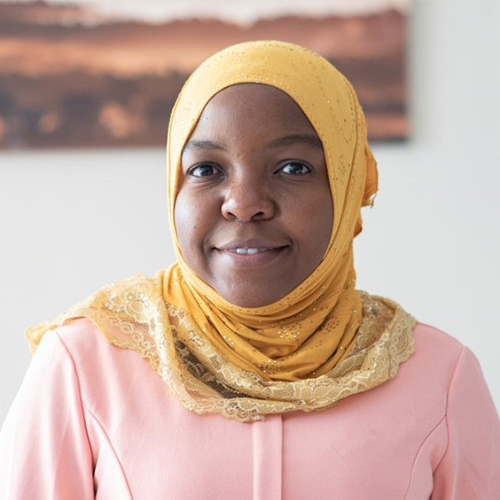 Halima Sumayya Twabi
Halima Sumayya Twabi Malawi
Cohort 2 (2020)
University of Malawi, Chancellor College, Malawi (SSACABT)
Twabi's project aims to provide professional guidance and support to upcoming young female scientists through a science mentorship program.
 Joel L. Bargul
Joel L. Bargul Kenya
Cohort 2 (2020)
Jomo Kenyatta University of Agriculture and Technology, Kenya (THRiVE-2)
There are an estimated 30 million pastoralists living in the Horn of Africa, and yet many of these groups have faced incredible challenges when it comes to education. Bargul's project will set up platforms to explore gender disparities in a nomadic pastoralists’ community and encourage participation of women and girls to understand, support and participate in scientific research.
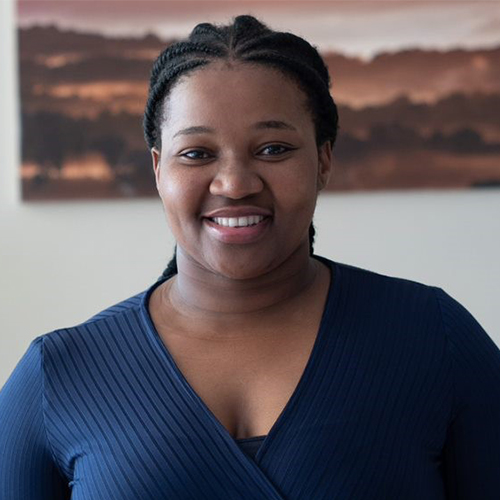 Maphe Mthembu
Maphe Mthembu South Africa
Cohort 2 (2020)
Africa Health Research Institute, South Africa (SANTHE)
Mthembu's project will transform 20 African scientists, both male and female, into a power pack of super scientists with their own superpowers, avatar, trading card and website. These super scientists will communicate their science and reframe problematic narratives that impact on women's career progression.
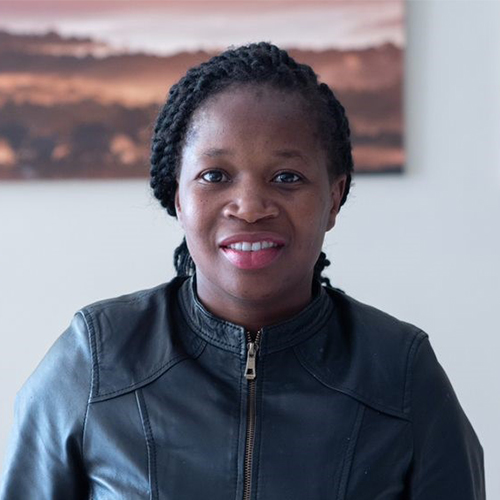 Malinda Kaiyo-Utete
Malinda Kaiyo-Utete Zimbabwe
Cohort 2 (2020)
University of Zimbabwe, Zimbabwe (AMARI)
Antenatal depression is very common; affecting one in four pregnant women in Harare. Globally, there is a call to increase male involvement in maternal health. Utete's project will determine the male’s perspectives on antenatal depression and what their role might be in reducing/preventing antenatal depression.
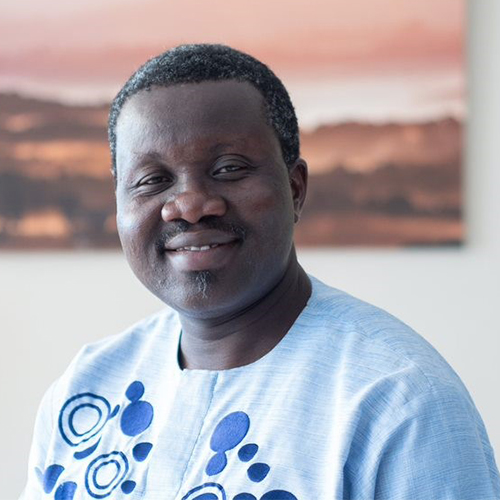 Adebolajo A. Adeyemo
Adebolajo A. Adeyemo Nigeria
Cohort 2 (2020)
University of Ibadan, Nigeria (CARTA+)
Adeyemo's project looks at the barrier's women face in advancing their careers in science, research and innovation and aims to create a platform to find solutions to solve discrimination, harassment and bullying.